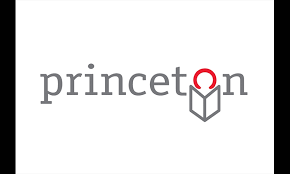The Princeton Public Library works hard to “be all things to all people” – from children learning to read, to removing barriers facing some members of the community and helping others find jobs.
That’s the message delivered by Princeton Public Library Executive Director Jennifer Podolsky in the annual report delivered to the Princeton Council at its April 8 meeting. National Library Week was held April 7-13.
Podolsky outlined the library’s accomplishments during 2023 and offered some hints about where it is headed in the next 12 months.
By the numbers, the library recorded 622,984 visits during 2023 – or 1,700 visits daily, Podolsky said. Overall use of the library and its offerings increased by 26%, compared to 2022.
Last year, the library provided 1,812 public programs and logged 70,813 virtual program attendees, Podolsky said. It logged 70,813 virtual program attendees and reported 324,814 physical checkouts of material and 186,730 digital checkouts.
“Given that the staffing level is flat year over year, the significant growth is indicative of the library staff working tirelessly to provide the programs, services and spaces that Princeton’s diverse community wants and needs,” Podolsky said.
The Princeton Public Library works to address and remove the barriers facing some members of the community, Podolsky said, adding it hosts immigration fairs and offers citizenship classes and other resources for English language learners.
“Housing justice was a major focus in 2023,” she said. “The year-long initiative provided information on all aspects of housing justice and help for patrons on housing issues.”
Podolsky pointed to panel discussions with experts, plus action fairs and resource guides aimed at helping community members facing housing issues.
Of course, the library also promotes early literacy through its collection and programming for children, she said. It has partnered with nursery schools and the Princeton Public Schools to raise awareness and increase access to the library’s resources.
There are special programs for English as a Second Language (ESL) teachers and English language learners, including library visits and tours conducted in English, Spanish and Mandarin, she said.
Thanks to a Princeton University grant, there are no fees or fines for youth materials checked out by students.
“Fees serve as an economic barrier and may impede access for economically challenged students,” Podolsky said.
Bridging the digital divide was another focus for the Princeton Public Library, she said.
“Some people have limited access to computer equipment and digital resources, so the library stepped in to provide free, equitable and flexible access to technology items,” Podolsky said.
One of the issues facing the library is the growing demand for eBooks and the expense of digital books, she said. Since 2019, the number of digital checkouts nearly doubled from about 100,000 to nearly 200,000 last year.
The eBooks cost three times as much as a print book and also have an expiration date. Print books, which are purchased by the library, do not expire and can remain on the bookshelves.
The Princeton Public Library also is a resource for local businesses and job seekers, Podolsky said. The library is a popular destination and draws foot traffic from local businesses.
It offers a variety of services to the business community and job seekers and those who are in transition. It is possible to rent low cost, technology-ready meeting spaces by private businesses or nonprofit groups.
The library also provides weekly educational programs, information services and networking opportunities for job seekers. The adult services staff offers individual career support, such as resume development and in-person training in the technical center for new skills or to brush up on old ones.
Looking ahead, Podolsky said, the library will continue to find ways to eliminate fees and fines that make the library inequitable for segments of the population.
“It is working to ensure that all students have a library card, and that services are extended to the Spanish-speaking community,” she said.
There are plans to expand the meeting room on the third floor of the library to accommodate a STEAM studio (science, technology, engineering, arts, and math) to increase access.
Enhancements also are planned for the community room and for meeting spaces. The furniture on the third floor, which is original to the building, will be replaced, Podolsky said, noting it has been subject to wear and tear since the library opened.
Podolsky wrapped up the presentation by inviting the Princeton Council to help the Princeton Public Library celebrate the 20th anniversary of its opening in the building at the corner of Witherspoon and Wiggins streets on April 24.


